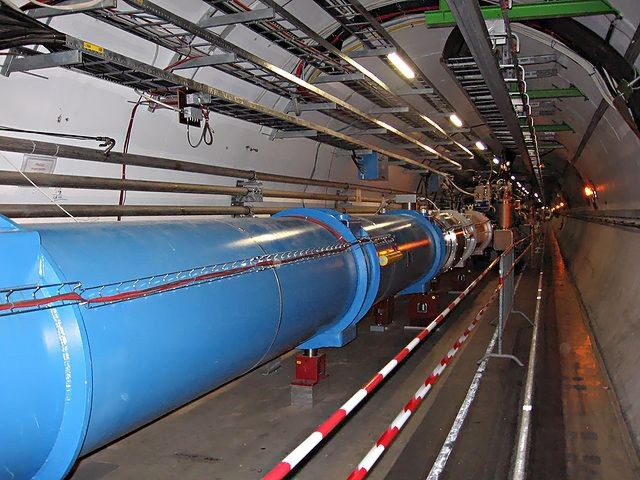Forbes: Finding The Higgs Boson Cost $13.25 Billion

CERN scientists announced Wednesday that they may have finally discovered glimpses of the elusive Higgs boson, called the God particle for its profound importance to our current model of physics.
It's an important discovery that could reshape scientists' understanding of the universe forever. But the question remains: How much did it cost?
According to Forbes, finding the Higgs boson ran about $13.25 billion.
The discovery came thanks to the work of the Large Hadron Collider, the world's largest particle accelerator, buried under the Swiss-French border. The facility took 10 years and around $4.75 billion to construct. Since it was declared operational in 2008, the LHC's operating costs have been about $1 billion each year.
What could possibly be driving the yearly costs up that high? The LHC requires a staff of more than 10,000 researchers, engineers, and students to stay afloat. Electricity costs alone for the LHC run about $23.4 million annually, while each year's computing costs have been estimated at $286 million each year. The collider is a delicate machine that requires constant upkeep.
Finally, experiments at the LHC also drive up costs. While the quest for the Higgs boson isn't the Hadron Collider's only intended purpose, most of the experiments carried out so far have been focused on finding the particle. These experiments have run an additional $5 billion in funding, bringing the total to the aforementioned $13.25 billion.
That seems like a ton of money. It's significantly more than the vast majority of people will earn over their entire lifetimes. But it's important to remember than the LHC's budget isn't composed of one person's checking account.
The LHC is a government project jointly funded by CERN member countries, with additional money for experiments coming from CERN and private research organizations. About half of the CERNS's funding comes from Germany, France, and the U.K., while CERN's other 17 member countries contribute the other half of the budget.
To put the costs in perspective, the total cost of finding the Higgs boson has been less than one year of NASA's budget (an estimated $17.711 billion for 2013). The 14-year project cost less than 2.2 percent of the United States' estimated military budget for 2013.
For a joint project of 20 countries and several research institutions, $13.25 billion over 14 years is a small price to pay for the secrets of the universe.
© Copyright IBTimes 2024. All rights reserved.






















